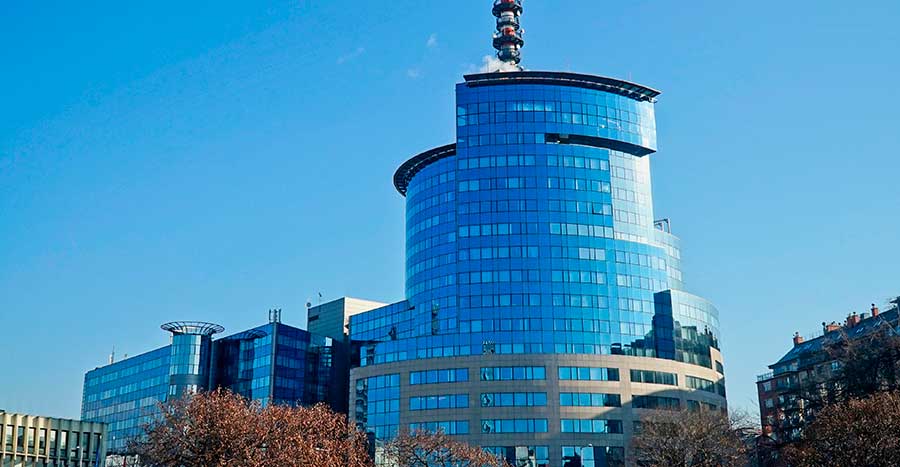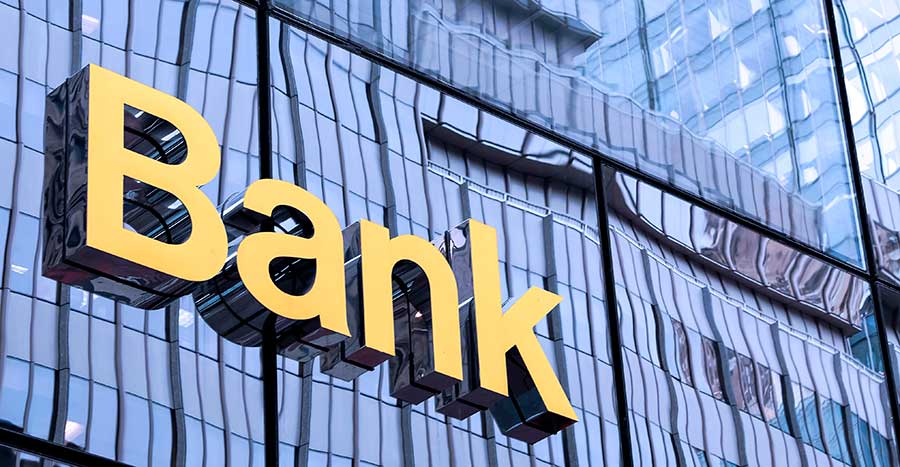Dubai is the Middle East’s largest business center with a loyal tax system and business-friendly infrastructure. There is no personal income tax and corporate tax is only 9%. The tax only applies to companies with profits of more than AED 375,000. More than 80% of companies registered in the UAE are foreign owned, reflecting the country’s open policy in attracting investment.
Business can be conducted in mainland Dubai or in one of the Free Economic Zones (FEZ). The latter offer tax benefits and allow foreigners to own 100% of the company. In addition, registering a business paves the way for a residency permit, making it easier to legally reside and conduct business in the country.
Why you should start a business in Dubai
Dubai is a major global business hub. It attracts entrepreneurs with minimal taxes, a stable economy and a convenient location. The government actively supports businesses and it is easy to set up an international business here.
✅ Tax benefits
- Corporate tax – 9%, but only applies to companies with an annual income of more than AED 375,000. This is still lower than in Europe and the USA;
- No personal income tax – business owners can withdraw profits without additional fees;
- Free Economic Zones (FEZs) – allow foreigners to own 100% of a company without having to bring in a local partner.
✅ Economic stability
- UAE GDP growth – 3-5% per year due to economic diversification;
- Developed banking system – convenient international transfers and investment opportunities;
- Transparent regulations – company registration takes only 2-4 weeks.
✅ Convenient location
Dubai is located at the crossroads of Europe, Asia and Africa, which makes it a convenient location for a logistics hub. As a result, it is easy to import, export and work with international partners.
✅ Government business support
- Hi Dubai – a free promotion and PR platform for local businesses;
- Dubai Next – a crowdfunding platform for startup funding;
- Government funds and accelerators – support for the development of technological, financial and tourism projects.
Sign up for a consultation
Dubai’s best neighborhoods for business
There are several business districts in Dubai, each suitable for a specific type of business.
📍 DIFC (Dubai International Financial Centre). The most important financial center in the region. International banks, investment funds and law firms operate here. The DIFC has its own financial regulations and the rents for class A offices start at $2,500 per month for 50 m².
📍 Dubai Internet City. Dubai’s largest technology hub. An excellent choice for SaaS companies, fintech startups and blockchain projects. It is home to Microsoft, Google, IBM and other international companies.
📍 Dubai Silicon Oasis. A technology park with a well-developed infrastructure. IT companies, research centers and electronics manufacturers are all part of the mix.
📍 Business Bay. Located close to the center of Dubai in a prestigious business district. Ideal for consulting, marketing and B2B services. Its proximity to the city center allows for convenient client meetings.
📍 Deira and Bur Dubai. Old shopping areas with markets, shops and warehouses. Excellent option for wholesale and small retail. Rental rates are lower here – from $1,500 per month.
📍 Jumeirah and Palm Jumeirah. Luxury districts for hotels, restaurants and high-end retail. High rental costs are offset by an affluent clientele.
What is the most profitable type of business to open in Dubai?
The UAE economy is growing in several key areas. Among the most promising sectors are e-commerce, tourism, real estate and fintech.
E-commerce. The e-commerce segment in the UAE is growing at 20-30% annually and the market volume has exceeded $10 billion. Dubai is one of the best places to launch online stores and marketplaces due to high income levels, a simple tax system and access to international logistics.
Tourism. Dubai welcomes more than 14 million tourists annually. This presents opportunities for the hotel business, real estate rentals, travel agencies and transportation services. Dubai’s popularity as a tourist destination continues to grow, especially among travelers from Europe and Asia.
Real Estate. Dubai is one of the largest real estate investment markets in the world. Rental yields reach 5-8% per annum and demand for commercial property is increasing. Foreign investors can buy and resell property without additional taxes, increasing the market’s attractiveness for capital investment.
Fintech. Financial technology is one of the fastest growing sectors. Dubai is actively implementing blockchain, digital banks, and online payment platforms. In 2023, fintech attracted over $2 billion in investment, and at the same time, the government is supporting startups with special programs.
Franchising in Dubai. There are more than 500 franchise brands operating successfully in the UAE, and the market continues to grow. Franchising is a convenient option for entrepreneurs who want to start a business with minimal risk. Popular areas include cafes, restaurants, beauty salons and delivery services.
To purchase a franchise, you will need an initial investment of $50,000. Both international chains and local brands are popular, as they are well adapted to the UAE market.
Business registration in Dubai
Registering a company in Dubai takes 2 to 4 weeks and involves several steps:
- Choice of the type of business. You need to define the scope of your business and choose the jurisdiction in which you want to register your company, either on the mainland or in a Free Economic Zone (FEZ).
- Choice of legal form. Possible options:
Sole proprietorship – suitable for professionals and small businesses, but requires a local agent.
LLC (Limited Liability Company) – common option, however, foreign ownership is limited to 49%.FZ-LLC – similar to an LLC in a free zone, allows 100% foreign ownership.
Joint Stock Company (Private/Public Joint Stock Company) – suitable for large projects with investors.
Branch of a foreign company – business expansion without establishing a new legal entity. - Company registration. Includes several steps:
Preparation of documents (passport, business plan, proof of financial solvency).
Choice and approval of a unique company name.
Obtaining a license (commercial, professional or industrial).Opening a business account in a bank. - License and certificate of registration. After verification of the documents, the company is officially registered with the Department of Economic Development (DED) or the administration of the free zone.
- Renting an office. Most companies are required to have a registered office in the UAE.
- Visa processing. The business owner can obtain a UAE resident visa, as well as visas for employees and family members.
Start a business in Dubai and become a UAE resident:
- 0% income tax for small companies;
- 100% foreign ownership of the company;
- Resident visa for the owner and his/her family;
- Easy access to international markets.

Leave an application and get a consultation with an immigration specialist
Opening a bank account
While opening a corporate account in the UAE is a must for a successful business, the process can be complicated due to strict bank requirements. When deciding on a bank, you should consider its reputation, minimum deposit requirements, and whether it is easy to work with international payments.
Banks require a different set of documents depending on the type of business, but the standard list includes:
- Constituent documents of the company (license, certificate of registration);
- Articles of incorporation and the protocol on the appointment of the director;
- Copies of passports of owners and signatories;
- Business plan or a statement of income sources;
- Financial statements or bank references;
- Proof of income sources (contracts, tax returns, invoices).
Complications that may arise:
- Know Your Customer (KYC) process – banks scrutinize business owners and may require additional documentation;
- Minimum deposit – some banks require between $5,000 and $50,000 to open an account;
- Application processing time – the process can take 2 to 8 weeks, especially if the founders are non-residents of the UAE.
How to choose the bank:
- Local banks – more loyal to residents and small businesses (Emirates NBD, RAKBANK);
- International banks – convenient for cross-border transactions, but have stricter requirements for non-residents (HSBC, Standard Chartered);
- For Free Zones – bank branches working with Free Zone companies offer special terms.
How much it costs to open a business in Dubai
The cost of registering a company in the UAE depends on the jurisdiction chosen, the type of activity and the size of the company. On average, the process will cost between $950 and $5,000 at the registration stage, excluding transaction costs.
Registration Fees:
- Registration fee – from AED 3500 ($950), mandatory payment;
- License – from AED 10 000 AED ($2700) for construction, AED 15 000 ($4080) for trade;
- License registration – AED 600 ($160).
Operating costs:
- Office rent – from $1,300 per month, depending on location and area;
- Employee salaries – average $4,300 per month, but vary greatly by industry.
Additional costs:
- Opening a bank account – some banks require a deposit of $5,000 or more;
- Government fees – may vary depending on the type of business.
The total cost can be calculated individually based on the specifics of the business. On average, starting a business in Dubai requires between $5,000 and $20,000, including registration and start-up costs.
Taxes and financial regulations in Dubai
The UAE tax system is considered one of the most business-friendly in the world. The country has no personal income tax and corporate taxes remain among the lowest in the world.
From 2023, the UAE has a 9% corporate tax for companies whose annual income exceeds AED 375,000 ($102,000). No tax is levied if the company’s profits are below the amount.
Companies registered in Free Economic Zones (FEZs) can operate at a preferential rate of 0%, subject to conditions set by the UAE authorities.
Other taxes:
- Value Added Tax (VAT) – is 5%, but does not apply to all activities;
- Import duties – depend on the type of goods, but may not apply to companies in the LEZ.
Companies are required to file annual accounts and comply with UAE tax laws.

International business operations in Dubai
Dubai’s flexible regulations, favorable tax regime and lack of exchange controls have made it a key location for international companies. The main advantages are:
- No currency restrictions – companies can freely transfer funds abroad;
- Access to global markets – conveniently located between Europe, Asia and Africa;
- Simple holding structure – companies in the UAE can be used as centers to manage assets in other countries.
Which companies use Dubai as a transactional hub?
- IT and SaaS companies – UAE allows international payments without complex regulations;
- Fintech and payment systems – many companies are registering in the UAE to work with cryptocurrencies and cross-border payments;
- Wholesale and export – advanced logistics and zero import taxes in free zones make Dubai a convenient hub.
Legal aspects to consider:
- Licensing of financial transactions – some activities require a financial license;
- Taxation of international transactions – companies with actual activities in the UAE may enjoy tax benefits;
- Choice of jurisdiction – Free Zone or Offshore companies may be the best choice depending on the business model.
Working with UAE partners and authorities
The business environment in the UAE is different from the usual European or American environment. Personal connections, respect for traditions and knowledge of the local laws are of great importance here.
How to choose a reliable partner. When opening a company on the mainland, a foreign entrepreneur cannot own more than 49% of the company. The remaining 51% is owned by the local partner. Therefore, it is important to choose a reliable co-founder who is not just listed on paper, but someone who will actually help you.
Better to check the partner in advance: study his reputation, contact other entrepreneurs, involve a lawyer. In Dubai, contracts are only valid within the framework of local legislation, so it is important to sign contracts drawn up by lawyers familiar with the UAE legal system.
How to deal with the government. Licensing, registration and tax reporting can vary depending on the type of business. Free zone companies face some requirements and mainland companies face others. For example, some industries are required to confirm compliance on an annual basis.
Government inspections are strict here, but if you follow all the rules, there are no problems. It is important to keep abreast of changes in legislation: for example, the UAE has introduced a 9% corporate tax from 2023.
Business culture and negotiations. In the Arab world, much is based on personal trust. A formal contract is good, but without face-to-face meetings and good relationships, it is difficult to close a big deal.
Negotiations in Dubai can be lengthy – local businessmen do not like to rush into decisions. You must be prepared. However, once trust is in place, the relationship will be a long-term one.
In the UAE, you cannot publicly criticize the authorities, discuss religion, or express a negative attitude toward the country. This also applies to business communication – it is best to avoid discussing such topics.
How to buy a ready-made business in Dubai
Buying a ready-made business is a quick way to enter the market, but it also carries risks. Careful evaluation of the company, its financial performance and its legal status is important.
The pros and cons of buying a business
✅ Established infrastructure and customer base;
✅ There’s no need to go through the registration process from the very beginning;
❌ Potential debts or legal issues;
❌ Little control – the structure of the business may not align with what you want to accomplish.
Company search and evaluation
In the UAE, business for sale listings are rarely published, so searches are conducted through agencies, consulting firms and closed business networks.
Before the purchase, it’s important to check:
- Financial statements for the last 2-3 years;
- Existing debts and obligations to government agencies;
- Licenses and permits to conduct business;
- Contracts with employees and tenants;
- Department of Commerce records – companies with violations can have their activities restricted.

Business acquisition process
- The buyer and seller discuss the terms of the transaction and sign a preliminary agreement.
- Company documents are reviewed and an audit is conducted.
- A sale and purchase agreement is drawn up, setting out the terms of the business transfer.
- An application for change of ownership is submitted to the Ministry of Economy.
- Once the transaction is approved, the details are updated at the Dubai Chamber of Commerce.
Requirements for foreign nationals
Foreign entrepreneurs can buy a business on the same terms as residents, however:
– In Mainland, ownership is limited to 49%, a local partner is required.
– In the Free Zone, you can own 100% of the company.
















